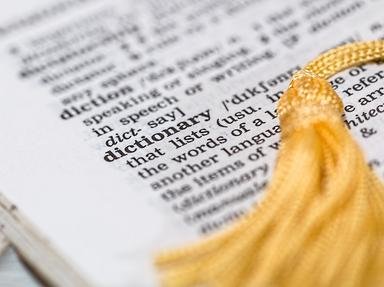Quiz Answer Key and Fun Facts
1. This word is an important component of biochemistry. Which of the following words has been around since the 1800s and describes a protein substance that speeds up metabolic reactions in the human body?
2. Which of the four variants is an accepted dictionary spelling of the word meaning a bird's nest built in a very high place?
3. Which of the following words is used to describe something ugly or offensive to the eyes?
4. Employee is a nice uncomplicated word, meaning someone who works for an employer. The verb employ in its 'payment for work' definition has been in use since the late 16th century but when did the derivative term employee arise?
5. Which of the following words would describe a copy, replica or reproduction of an original?
6. Which of the following words refers to a red or pink mineral also known as cobalt bloom?
7. Which of the following combination words, which developed from combining two separate words, has been used to mean both continually and occasionally.
8. Which of the following words describes a building or structure with columns placed at a distance equal to two and a half to three times their diameter?
9. The word extrasystole means a heartbeat occurring outside the normal cardiac rhythm. True or false?
10. This was a fun quiz to research. As part of my background work I needed to study the origin of the words I used in the quiz. What would be the correct word from the options provided which describes what I did?
Source: Author
Wordpie
This quiz was reviewed by FunTrivia editor
ponycargirl before going online.
Any errors found in FunTrivia content are routinely corrected through our feedback system.
